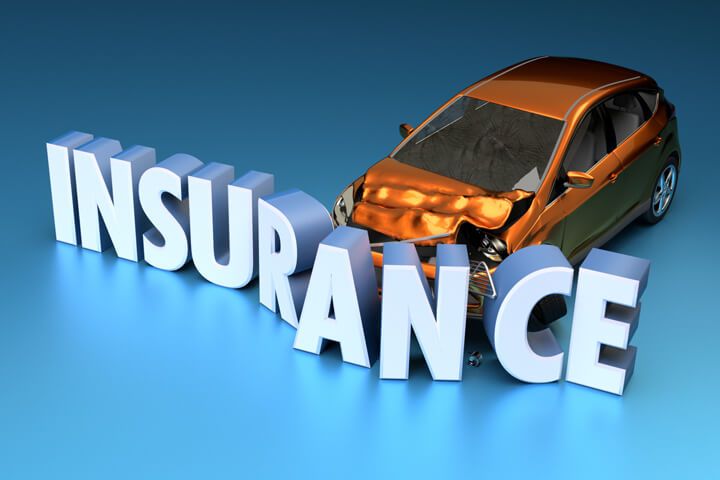In today’s fast-paced world, owning a car is more than a convenience—it’s often a necessity. But with car ownership comes responsibility, and one of the most crucial responsibilities is having car insurance. Not only is it legally required in most countries, but it also serves as a financial shield in case of accidents, theft, or damage.
In this article, we’ll dive deep into what car insurance is, its types, benefits, how it works, and what to consider before buying a policy.
What is Car Insurance?
Car insurance is a contract between the vehicle owner and an insurance company. In this agreement, the insurer agrees to cover certain financial losses related to the vehicle in exchange for a premium. This coverage can include damage to your own car, damage caused to others, medical expenses, and even legal liabilities.
Why is Car Insurance Important?
- Legal Requirement
In many countries, having at least third-party insurance is mandatory. Driving without insurance can lead to fines, penalties, or even license suspension. - Financial Protection
Car accidents can result in costly repairs or medical bills. Insurance helps mitigate those expenses. - Protection Against Theft & Natural Calamities
Comprehensive car insurance can cover damage from fire, floods, earthquakes, or theft. - Third-party Liability
If your car causes damage to someone else’s property or injures another person, your insurer will cover those liabilities. - Peace of Mind
Knowing you’re covered brings confidence and reduces stress while driving.
Types of Car Insurance
Car insurance policies are generally divided into two broad categories:
1. Third-Party Insurance
This is the most basic and legally required insurance. It covers:
- Injury or death of another person caused by your vehicle
- Damage to another person’s vehicle or property
However, it does not cover any damage to your own vehicle.
2. Comprehensive Insurance
A comprehensive policy includes third-party coverage and also protects:
- Your vehicle against damage (due to accidents, fire, floods, etc.)
- Theft or total loss
- Personal accident cover (for the driver)
You can also enhance it with add-ons like:
- Zero depreciation cover
- Engine protection
- Roadside assistance
- Consumables cover
- Return-to-invoice cover
Key Terms in Car Insurance
Understanding basic insurance jargon can help you make an informed decision:
- Premium – The amount you pay to the insurer to keep your policy active.
- IDV (Insured Declared Value) – The current market value of your car, which is the maximum sum insured.
- Deductible – The amount you pay out of pocket before the insurer covers the rest.
- No Claim Bonus (NCB) – A discount on your premium for not making any claims in the previous policy term.
- Claim – A request made to the insurance company to compensate for a covered loss or damage.
How Does Car Insurance Work?
Here’s a basic step-by-step overview:
- Buy a Policy: Choose the type of policy and any desired add-ons.
- Pay Premium: Either annually or in installments.
- Get Insured: Your car is now covered against the listed risks.
- Raise a Claim: If an accident occurs, notify your insurer and submit the required documents.
- Inspection & Approval: The company inspects the damage and approves the claim.
- Payout or Repairs: You receive money or get your car repaired through a network garage (if cashless).
How to Choose the Right Car Insurance
Selecting the right policy can be confusing. Here are some tips:
Compare Policies Online
Use aggregator websites to compare premiums, features, and claim settlement ratios of different insurers.
Choose Adequate Coverage
Third-party insurance may be cheaper but offers limited coverage. Opt for a comprehensive plan if you want full protection.
Evaluate IDV
A higher IDV means a higher premium but also a higher payout in case of total loss.
Look for Network Garages
Insurers with a wide range of cashless garages offer greater convenience during repairs.
Check Claim Settlement Ratio (CSR)
The higher the CSR, the more reliable the insurance provider is likely to be.
Use NCB Wisely
If you haven’t made any claims, you can receive a discount of up to 50% on your premium over 5 years.
How to File a Car Insurance Claim
- Inform Your Insurer Immediately
Report the accident or theft as soon as possible. - File an FIR (if required)
Especially in cases of theft or major accidents. - Document the Incident
Take photos of the damage and note down details. - Submit a Claim Form
Along with necessary documents such as registration certificate, driver’s license, and FIR copy. - Survey & Assessment
The insurer sends a surveyor to assess the damage. - Approval & Settlement
Once approved, your vehicle is repaired (cashless) or you receive a reimbursement.
Top Car Insurance Companies in 2025 (India Focused)
- ICICI Lombard
- HDFC ERGO
- Bajaj Allianz
- Tata AIG
- Reliance General
- Digit Insurance
- SBI General
- New India Assurance (Govt. owned)
These companies offer a wide range of plans, 24/7 customer support, and hassle-free claim settlement.
Benefits of Buying Car Insurance Online
- Convenient and Quick
- Lower Premiums
- Instant Policy Issuance
- Easy Comparison
- Paperless Process
Common Mistakes to Avoid
- Choosing a low premium over better coverage
- Not disclosing previous claims or vehicle modifications
- Ignoring policy renewal dates
- Not reading the fine print
Conclusion
Car insurance is not just a legal formality; it’s a practical necessity. With rising road accidents, unpredictable weather conditions, and increasing thefts, having the right car insurance gives you peace of mind and financial security. Whether you’re a first-time car owner or renewing your policy, always take the time to understand the features, benefits, and limitations before making a decision.
Protect your car. Protect your life

